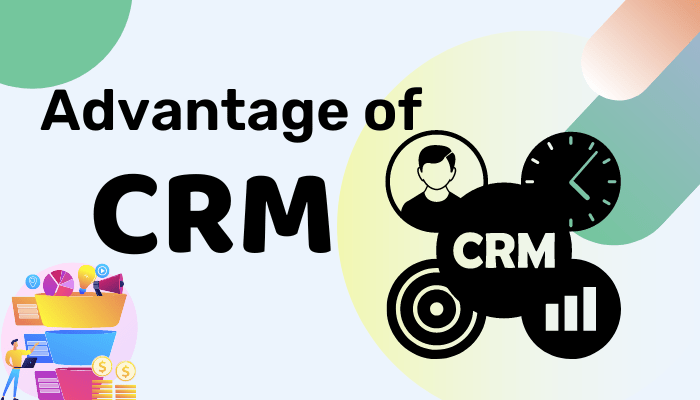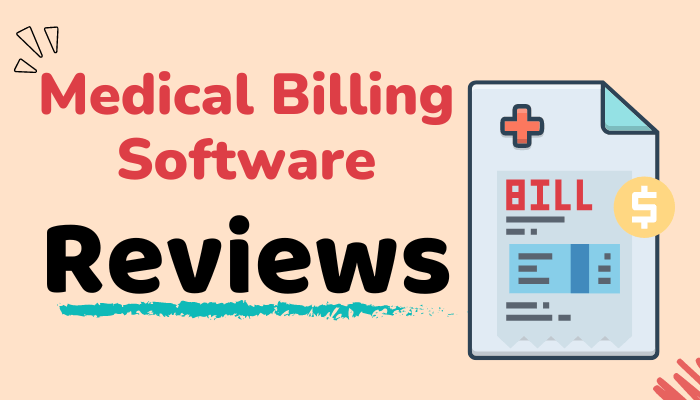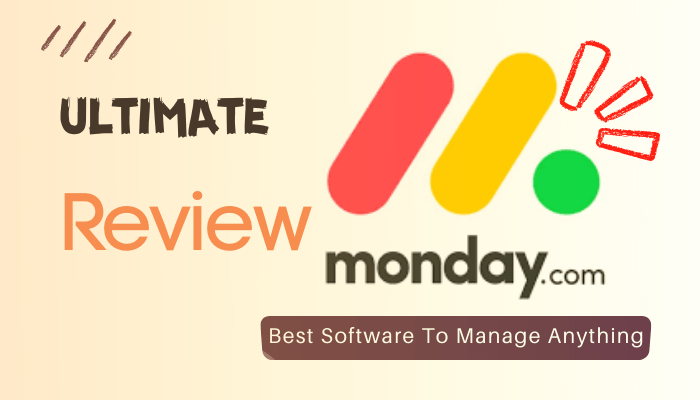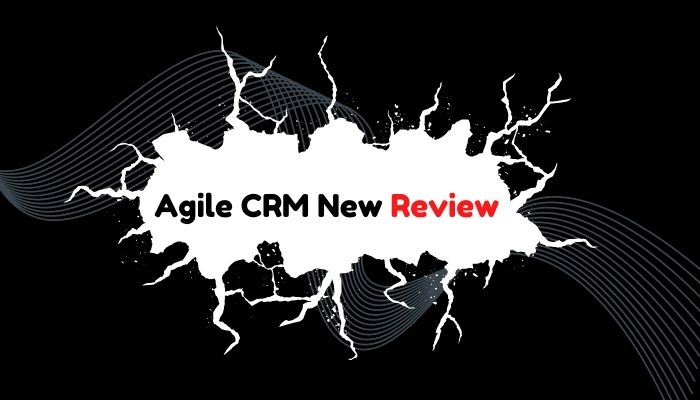Project Management Ultimate Guide For Outstanding Career22 min read

What Is Project Management?
Project management is the process of planning, executing, and monitoring the progress of a project.
It involves setting objectives, developing a timeline, and assembling a team of people to work on the project.
The project manager is responsible for ensuring that the project is completed on time and within budget.
Project management is a critical skill for any individual who wants to successfully complete a project.
By understanding the project management process, you can ensure that your project stays on track and is completed on time.
Best CRMs for Project Management
Why Is Project Management Important?

It is the process of organizing and managing resources in a way that enables a project to be completed within its defined scope, timeline, and budget.
An effective project manager will use various tools and techniques to keep the project on track and ensure its successful completion.
One of the most critical aspects of project management is setting and project monitoring project milestones.
Milestones are key events or deliverables that mark essential stages in the project life cycle.
By setting milestones, the project manager can track the progress of the project and identify any potential problems that may arise.
Another important aspect of project management is risk management.
Risk management is the process of identifying, assessing, and responding to risks that could impact the success of the project.
By identifying risks early on, the project manager can take steps to mitigate or avoid them altogether.
It is essential for ensuring that projects are completed on time, within budget, and to the required standard.
By using effective project management practices, project managers can increase the chances of success for any given project.
Processes Of Project Management
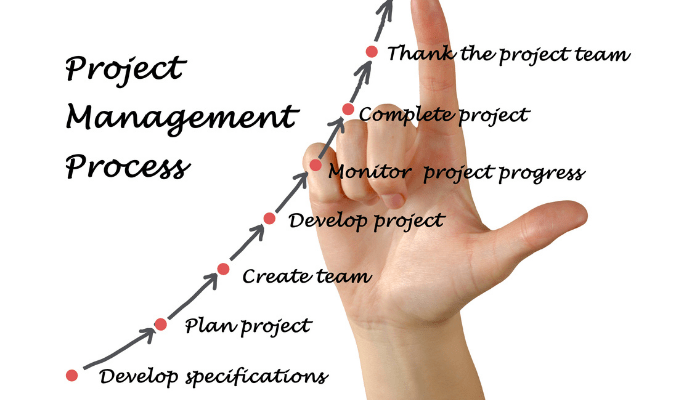
While there may be minor variations from industry to industry and project type, every successful company or individual project has a set of consistent processes they follow throughout the entire process.
These steps can help you tackle your next big task with ease!
What Are The Basics Of Project Management?

When it comes to projects, a project manager’s job isn’t just about managing the time and money they must also make sure that each part of their workload is streamlined so workflows run smoothly.
This experience with every aspect can help them troubleshoot problems faster because they are familiar enough with what needs fixing on any given client’s end!
You’ll be able to track this during performance reviews too; if an employee has been dealing mostly with one type or phase within your overall plan then there should only need minor modifications everywhere else.
It is the process of guiding a project from start to finish. It includes setting project goals, developing a project plan, and monitoring project progress.
The process helps to ensure that a project stays on track and is completed within the desired time frame.
What is Project Management Life Cycle?
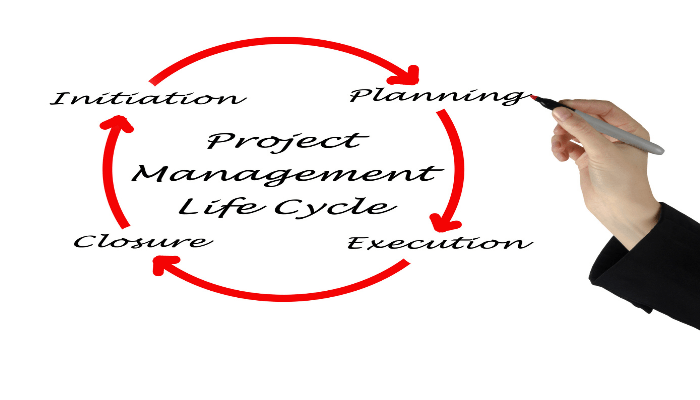
The project management lifecycle is the process that project managers develop and follow to take a project from conception to completion.
The life cycle is divided into four distinct phases. In each phase, they complete different tasks and deliverables in order to move the project forward.
While it can vary depending on the industry and type of project, the basic steps remain the same.
By following the project life cycle, they can ensure that all aspects of the project are accounted for and that the project is completed on time and within budget.
- Initiation
- Planning
- Execution
- Closure
Each phase of the life cycle has its own distinct set of activities and deliverables.
The project lifecycle typically starts with the initiation phase, in which the project team develops a project charter and stakeholder analysis.
During the planning phase, the team creates a project schedule and work breakdown structure.
The execution phase is when the majority of the project work is completed.
Finally, in the closure phase, the team performs a project review and completes any final deliverables.
The United States considers most countries implement project management strategies in everything they are doing.
As the iron triangle is a term used to describe the relationships that develop between congressional committees, federal bureaucrats, and interest groups during policy creation.
These three actors naturally work together over time until they are very close in proximity which creates an environment perfect for corruption or influence-peddling schemes (such as lobbying).
14 Project Management Approaches & Project Management Methodologies

There are different Types Of Project Management when it comes to managing a project, there is no one-size-fits-all approach.
The type used will be dictated by the nature of the project, the resources available, and the end goals.
What Are Project Management Techniques?
Project management techniques are tools and processes that efficient project managers use to complete projects on time, within budget, and with high quality.
Quality management ensures that the project meets its objectives in terms of quality standards.
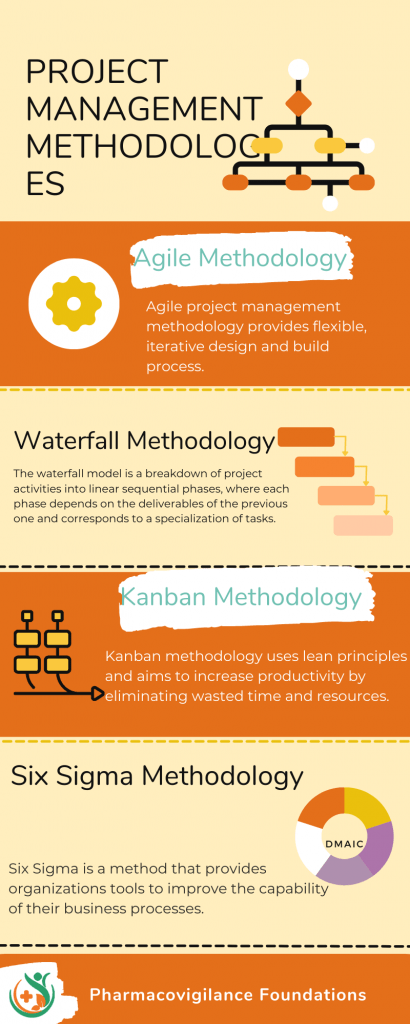
Resource management includes identifying, acquiring, allocating, and tracking resources such as human resources, equipment, and facilities.
Other commonly used techniques include earned value management, which tracks progress against a project baseline; risk management, which identifies and assesses risks; and change management, which manages changes to the project.
By using these techniques, efficient project managers can increase the likelihood of success for their projects without the need to change management.
However, there are some common types of management methods that are used across a variety of industries.
1- Agile project management
It is one of the most popular methods and is characterized by its flexibility and adaptability.
This approach is well suited for projects that are likely to change or evolve over time.
It is another common method and is often seen as being more rigid and structured.
This approach is better suited for projects where the scope is well defined and unlikely to change.
There are also hybrid approaches that combine elements of both agile and traditional management.
Whichever method is used, the goal is always to ensure that the project is completed on time, within budget, and to the required standard.
2- Waterfall project management
It is a straightforward, linear system in which each phase must be completed before moving on to the next one.
This process has many benefits including ease of understanding and clarity on responsibilities for all members involved.
However, it’s not always ideal when working with shorter or more fluidly defined projects that require flexibility over time (such as those created through agile methodologies).
3- Scrum project management
The Scrum methodology was developed to address the challenges faced by agile project managers.
It focuses on completing work in short cycles called “sprints,” which are led by a team’s daily standups that include discussion about task progress and any issues preventing them from productive usage of time or materials.
This meeting is supervised via one person known as “the master” who ensures everything goes smoothly throughout each day-to track tasks completed, identify obstacles/barriers ahead so nothing gets left unattended etcetera
4- Kanban project management
Kanban methodology is a great way to visualize and organize your workflow.
The key idea behind this system, emphasizes eliminating wasteful work and inconsistencies within projects in order to increase production rates for teams or companies.
It splits tasks into smaller stages so each team member can focus on one actionable task at once while tracking their progress via cards placed next to appropriate boxes (to do’s), alongside completed sections(complete).
5- Lean project management
The Lean style is a great way to increase efficiency across all your processes.
In order for this approach to work, you have first to identify what value means from the customer’s perspective and then identify.
Which actions are necessary in order to reach the completion of their goals or objectives with just those steps eliminate anything else!
This evaluation process continues as long there’s feedback available so it can always get better at optimizing on delivering maximum satisfaction every time without wasting any unnecessary resources along the journey.
The principle behind lean isn’t about cutting corners; instead, its goal is efficiency.
6- Six Sigma project management
Six Sigma is a powerful methodology for improving any process by eliminating waste and focusing on quality.
The five phases of the method include defining projects and measuring data in order to identify problems within your processes or customer service operations.
So they can be fixed effectively without impacting deadlines much more than necessary.
Analyzing root causes when there’s an issue with something you’ve implemented into workflow because sometimes these issues come up after commissioning new equipment/building materials, etc.
Implementing solutions that will help control the scope of the project planning.
7- PRINCE2 project management
The PRINCE2 style emphasizes an organized and controlled process, while still offering the flexibility to make necessary changes.
This technique is essential for managing project planning that has a tight timeline or high stakes.
It ensures success by clearly defining team ‘ roles during each phase of development as well as ensuring quality control measures are in place before moving on toward the conclusion.
8- eXtreme programming (XP) methodology
The eXtreme Programming (XP) methodology is an agile project management style that was designed for software development.
This form emphasizes teamwork and collaboration across managers, customers, and developers with teams self-organizing according to rules set out in their five values: simplicity, communication(face-to-face preferred), feedback, respect, and courage.
9- Adaptive project framework (APF) methodology
The methodology of adaptive project planning is designed to account for inevitable changes in any given situation.
For example, as John Steinbeck might say “even the best-laid plans of mice and men often go awry.”
The fundamental attribute that every team brings into a work environment with them when using this type of agile method from APM (adaptive planning).
This means they have an obligation towards risk management or preparation for unforeseen circumstances.
This may arise during their time working on projects together within organizations across industries worldwide because no two teams will ever experience exactly alike challenges at all times!
10- Critical path method
Critical Path Analysis is a method for identifying and scheduling all of the critical tasks that make up your project.
It does this by measuring how much time each task will take, as well as their dependencies on other jobs to be completed before they can start working on yours!
11- New product introduction (NPI)
New product introduction is an excellent methodology for when you want to, well… introduce a new product!
As the requirements of this process span many departments within your company from leadership and technology experts all over engineering-from designers who create designs.
That will be manufactured by manufacturers ready at hand with production lines set up just waiting.
It takes time to collaborate across various groups like marketing professionals skilled in public relations or even salespeople eager about getting their hands on some fresh merchandise.
It’s not one single person’s job alone but rather teamwork allows these things to happen so efficiently.
12- Package enabled reengineering (PER)
Performing a project with Package enabled reengineering helps you take an existing process and make it more efficient.
This can be done in two ways: redesigning products or services, which is what we focus on here at work; or realigning people.
So that they are performing their tasks better than before – this could mean moving certain employees into new roles while letting others go because there isn’t enough need for them anymore!
13- PMI’s PMBOK
The Project Management Institute (PMI) book, The PMP Book of Knowledge is not just a methodology.
The project management institute is also an excellent resource for those who want to become certified in what they do best — whether it be through earning their own certificate or taking on more responsibility at work!
14- Critical Chain Project Management
The application of critical chain project management (CCPM) also Project Management Institute for planning and managing projects is designed to deal with the uncertainties inherent in managing a large multidisciplinary effort.
The key insight that underlies this theory, which was first proposed by main positively lies within its definition: “The work effort required – inter-dependencies.”
By evaluating all tasks input requirements of this project management institute along every possible path through your network diagram from the start date until completion time you will be able to highlight any potential issues before they grow into
Why all of these Project Management Methodologies?
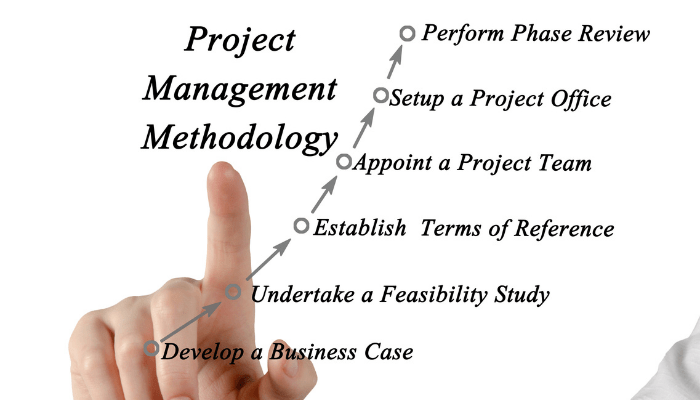
The complexity means there’s no one size fits all approach.
Different types of project teams and industries will have varying needs when it comes to managing projects, which makes finding the best system a tough task in itself!
Software development is a complex process, with many moving parts.
In order to get the job done right and in time for release day (or launch week!).
Developers need an approach that takes into account their particular challenges.
This may include increased risk due to interruptions from stakeholders or unexpected changes in scope; limited resources such as budget dollars.
Dedicated solely towards software engineering tasks versus overall project management efforts like tracking change requests across multiple project teams.”
So how do you choose which method is right for your project team? Well, first off there are the obvious things like size and budget.
But what if those factors don’t matter as much in determining the success or failure of a given endeavor?
There’s also scope creep—the tendency for projects to expand beyond their original intent with time; this can happen either because people want them to or simply cannot resist adding new features to already complicated software.
Tips For Successful Project Management

1- Understand the project completely.
2- Determine the project’s specifications.
3- Hire an experienced project manager.
4- Establish crucial dates.
5- Communication is essential.
6- Consider the strengths and limitations of your teammates.
7- Make use of a project management program.
8- Control potential dangers.
9- Deliverables for testing
10- Project evaluation
11- Excellent communication skills for the project requirements without trade offs.
What is a project management framework?

A project management framework is a set of rules, guidelines, and best practices that project managers can use to plan and execute projects.
The most popular framework is the PMBOK, which stands for the Management Body of Knowledge.
Other popular frameworks include the Agile methodology and Scrum.
Each framework has its own unique set of tools and techniques that project managers can use to make their projects more efficient and successful.
Monday.com is a project management tool that can be used with any project framework.
It helps project managers to plan and track progress, communicate with team , and get work done more efficiently.
Monday.com makes it easier and more efficient for everyone involved not just but also can present any management methodology in a visual way so that all team members can be involved.
Monday.com will give you the feeling of
1- having a mini management office,
2- controlling your project team members,
3- an excellent project documentation
4- Fulfilling project objectives
5- Organizing the roles in the easiest way
6- having satisfied stakeholder management
7- Finally project execution according to the project plan and project components
The Triple Constraint of Project Management

The triple constraint theory says that every project will have three important constraints: time, cost, and quality.
These are the most crucial factors when it comes to successful projects because they cannot be overlooked or compromised in any way if you want them all fulfilled at once!
- Budget/cost
- Time and
- Scope.
And these limitations are tied to each other in the sense they can’t be separated from one another without exploring how you’d like your end product to result from hard work on our part as humans construction machines who build something out there beneath us all!
What Are The Best Project Management Tools Or Software?

Project management tools can provide a number of benefits for businesses and organizations.
Perhaps most importantly, they can help manage projects more effectively, ensuring that project deliverables are met on time and within budget.
Additionally, tools can help with cost management, and project schedule, as they can provide insight into where money is being spent and where savings could be made.
Furthermore, the tools can help to improve communication and collaboration between team members, as well as between different departments within an organization.
Ultimately, the tools can help businesses to operate more efficiently and effectively, resulting in greater success.
1- Engagebay
2- Monday
3- Asana
4- Trello
5- Workzone
6- ProofHub
7- MeisterTask
8- Wrike
9- Teamwork
10- Podio
Steps To Get The Most Out Of Project Management Software

Using project management software is an effective way to ensure project success.
By following a few simple steps, project managers can maximize the benefits of the software and improve project outcomes.
First, project teams should clearly define project objectives and expectations.
This will help ensure that all project stakeholders are on the same page and that the software is being used to achieve the right goals.
Next, they should track progress against objectives and milestones.
This will help identify issues and potential risks early on so that they can be addressed before they impact the project completion date.
Finally, they should regularly communicate with project stakeholders.
This will keep everyone updated on project progress and ensure that there is buy-in from all sides for the software being used.
By following these steps, project managers can make sure that they are getting the most out of their software and improving their chances of success.
What Are Essential Skills For Project Management?

In order to be successful, project managers need to have a number of essential skills.
Firstly,
they need to be able to effectively communicate with team members and other stakeholders.
This includes being able to clearly articulate objectives and expectations, as well as provide updates on progress.
Secondly,
They need to be well organized and have strong time management skills.
They need to be able to create detailed plans and schedules, and ensure that tasks are completed on time.
Thirdly, they need to be able to identify risks and problems early on, and put in place mitigation strategies.
Finally,
Project managers need to be open to continuous improvement. They need to constantly look for ways to optimize processes and improve results.
By possessing these skills, they can set their team up for success.
1. Effective Communication
2. Negotiation
3. Scheduling and Time Management
4. Leadership
5. Technical Expertise
6. Risk Management
7. Critical Thinking and Problem Solving
How To Become A Project Manager

A project manager is responsible for leading a team of individuals to complete a specific goal.
To become a project manager, it is essential to have strong leadership skills and be able to motivate team members.
Additionally, project managers must be able to effectively communicate with team members and other stakeholders.
They must also be able to handle conflict and stay organized.
Furthermore, it is important for project managers to be continuous learners and be open to new ideas.
By continuously improving their skills, they can better manage projects and help their team members reach their full potential.
What Are Project Management Certification?

PM certification is the process of validating project management skills and knowledge against an established set of standards.
This can be done through an independent body or a project management institute.
Certification from the trust project management institute provides project managers with the tools and techniques they need to be successful in their roles.
It also allows them to demonstrate their commitment to efficient project success.
There are a number of different certifications available, and project management professionals can choose the one that best suits their needs. However, it is important to note that not all certifications are created equal.
Some are more recognized and respected than others, and it is important to do your research to ensure you choose a reputable certification program.
Top Credible Project Management Certification
1. PMP: Project Management Professional
It is one of the best project management institute.
Price
- Member: US $405.00
- Non-member: US $555.00
2. CAPM: Certified Associate in Project Management
Price
- Member: US $225.00
- Non-member: US $300.00
3. CSM: Certified ScrumMaster
Price
- Around $995 to $1,395
4. CompTIA Project+ certification
Price
- $285
5. PRINCE2 Foundation/PRINCE2 Practitioner
Price
Foundation: $200; Practitioner: $340
6. CPMP: Certified Project Management Practitioner
Price
- $199
7. ACP: Agile Certified Practitioner
Price
- Between $490 and $640
8. CSSGB: Certified Six Sigma Green Belt Certificate
Price
- $440 per exam attempt.
What Are Project Management Team Roles?
In any project, large or small, there are always going to be a lot of moving parts. It is the job of the project manager to keep track of all these parts and ensure that they are all working together cohesively.
However, the project manager cannot do this alone. They need a strong team behind them to support and execute the project scope.
There are many different roles on a team, but some of the most essential roles include scope managers.
Who is responsible for ensuring that the project scope is realistic and achievable; project planners, who develop the project plan and timeline; and quality assurance managers, who make sure that the final product meets all the necessary requirements.
By working together, these different team members can help to ensure that the project is completed on time, within scope, and to a high standard.
How Much Does A Project Manager Make?
The median salary for a project manager in the U.S is $116,000 across all industries with most earning between 93k-140K
A pm’s salary depends on her level of education & experience as well team size region industry company – so it can vary depending on what you’re working towards!
Why Go After A Career In Project Management
A career can be both challenging and rewarding.
Those who pursue a career often find themselves working on a variety of different projects, each with its own unique challenges. However, the reward can be great.
Those who are successful often find themselves overseeing the execution of larger projects, which can be both personally and professionally gratifying.
In addition, the career can provide opportunities for those who are looking to move up the ladder within their organization.
For all these reasons, a career is often a wise choice for those who are looking to make a difference in their careers.
FAQs
Is PM Certification needed in Pharmacovigilance?
It is important to have this certificate but it is an additional huge bonus you can have to stand out, especially in clinical trials projects or QPPV positions.
Conclusion
My choice for the best Project Management tool or software is Monday cause no matter the Project Management Techniques you are using you can use Monday to execute your project.
This career is a challenging and rewarding career field. Project managers work on a variety of different projects, each with its own unique challenges.
However, the rewards of this career can be great.
Those who are successful in project management often find themselves overseeing the execution of larger projects, which can be both personally and professionally gratifying.
Check out our services.

